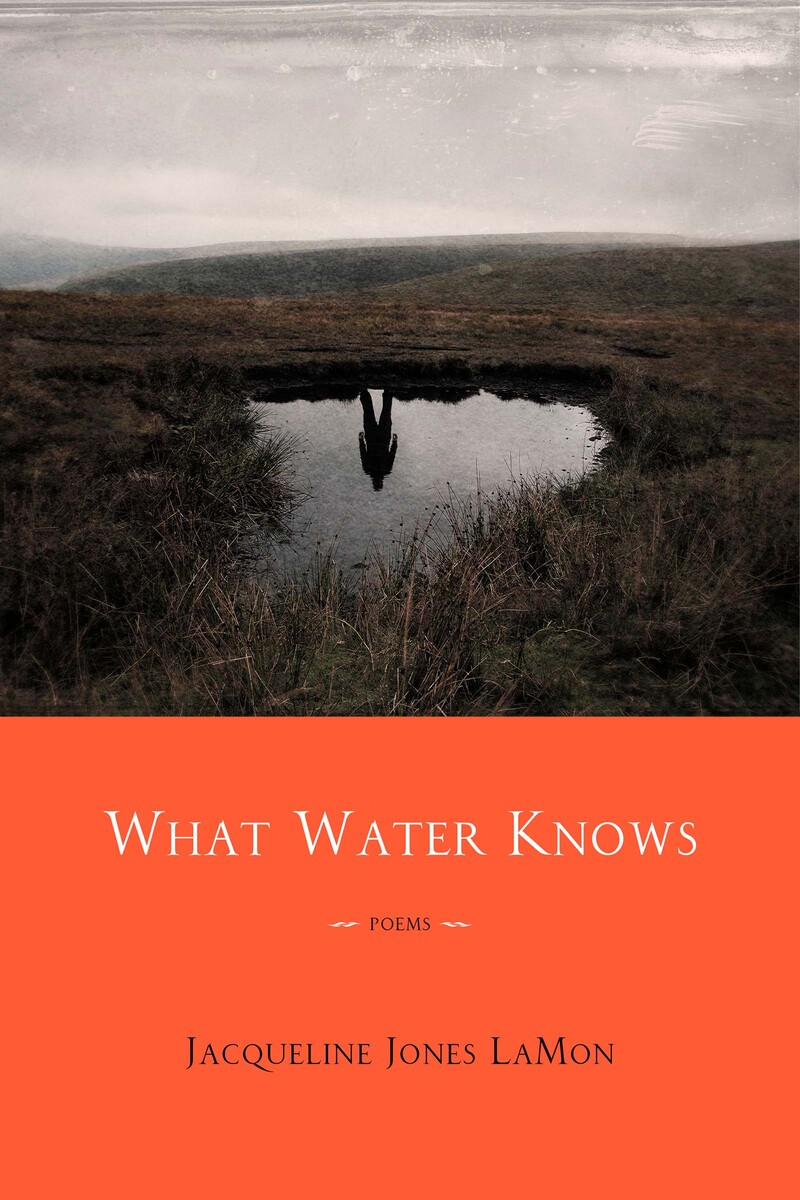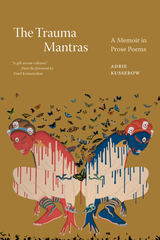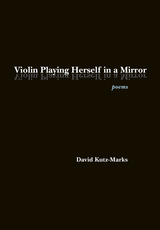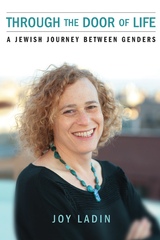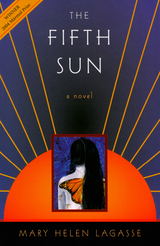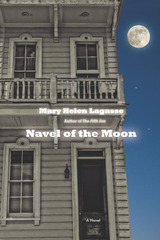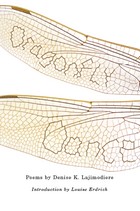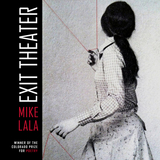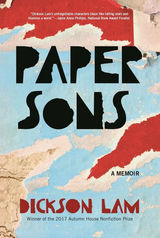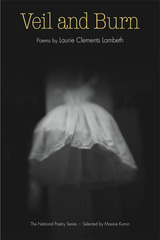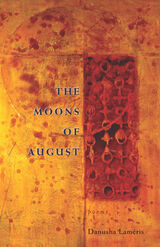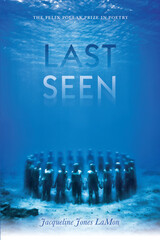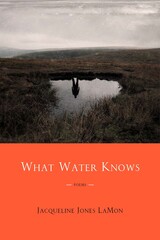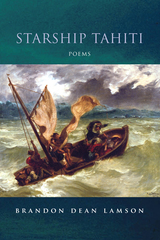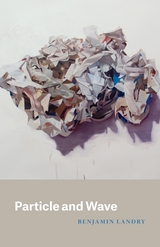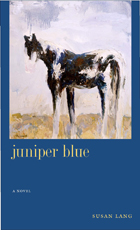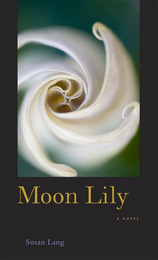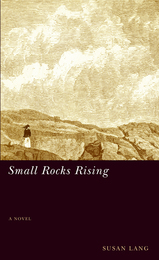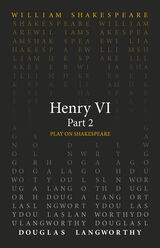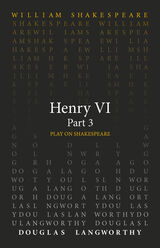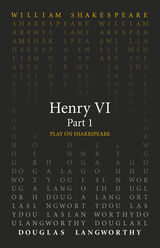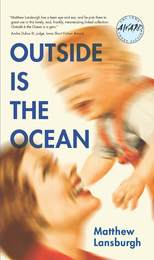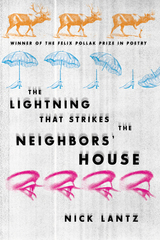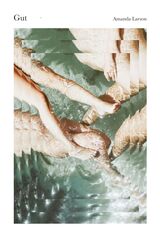What Water Knows: Poems
by Jacqueline Jones LaMon
Northwestern University Press, 2021
Paper: 978-0-8101-4384-5 | eISBN: 978-0-8101-4385-2
Library of Congress Classification PS3612.A547W48 2021
Dewey Decimal Classification 811.6
Paper: 978-0-8101-4384-5 | eISBN: 978-0-8101-4385-2
Library of Congress Classification PS3612.A547W48 2021
Dewey Decimal Classification 811.6
ABOUT THIS BOOK | AUTHOR BIOGRAPHY | REVIEWS | TOC | REQUEST ACCESSIBLE FILE
ABOUT THIS BOOK
Jacqueline Jones LaMon delivers a stunning third collection that shows the elements of life that both unite us and create our greatest distances. What Water Knows transports the reader from drought to drowning, from the transatlantic Middle Passage to the breaking of water, from water wielded as a weapon to used as a reward. LaMon offers a labyrinth to understanding how we are all connected—through vibrant, searing images depicting the core of racism, betrayal, addiction, loss, climate change, and the ever-changing world in which we live.
LaMon’s skillful embodiment of character and her signature use of personae invite the reader to experience the unfathomable. Prepare to go over Niagara Falls in a barrel. Prepare to feel the force of a fire hose on your bare legs. Prepare to experience what happens when greed gets in the way of reason. What Water Knows is a canonical poetic achievement that will remind us of what it means to be human in a world that often forgets.
LaMon’s skillful embodiment of character and her signature use of personae invite the reader to experience the unfathomable. Prepare to go over Niagara Falls in a barrel. Prepare to feel the force of a fire hose on your bare legs. Prepare to experience what happens when greed gets in the way of reason. What Water Knows is a canonical poetic achievement that will remind us of what it means to be human in a world that often forgets.
AUTHOR BIOGRAPHY
JACQUELINE JONES LAMON is the author of two award‑winning collections of poetry, Last Seen and Gravity, U.S.A., as well as a novel, In the Arms of One Who Loves Me. Vice President of Diversity, Equity, and Inclusion at Adelphi University, she has served as president of the Cave Canem Foundation.
REVIEWS
“This is an ambitious, stirring collection.” —Publishers Weekly
“Such a vibrant and beautiful book. I truly read it with my heart in my throat. LaMon speaks a language at once as familiar and foreign as love itself—with so much love. There is such a deep quietude to this book. She takes us beneath the covers of what it means to be a woman, to be a mother, to be Black, to be trapped—and finally, what it means to be free. I cannot wait for this book to be in the world. Everything I needed right now.” —Jacqueline Woodson, National Book Award winner and the author of Red at the Bone: A Novel
“Such a vibrant and beautiful book. I truly read it with my heart in my throat. LaMon speaks a language at once as familiar and foreign as love itself—with so much love. There is such a deep quietude to this book. She takes us beneath the covers of what it means to be a woman, to be a mother, to be Black, to be trapped—and finally, what it means to be free. I cannot wait for this book to be in the world. Everything I needed right now.” —Jacqueline Woodson, National Book Award winner and the author of Red at the Bone: A Novel
“With intimacy and clarity, What Water Knows offers us transcendent, lyric language that explores womanhood, race, history, justice, love, and the politics of our identities contained by the memory of water, released by it, or both. Fluid in her craft, LaMon’s powers are fully claimed here. In a poem about womanhood, she writes ‘We were our own fine line, / never crossed.’ Elsewhere LaMon asks a timeless question for us all: ‘What is it you need when you’re fleeing your home?’ The poet’s intuition and intelligence rise and crest without ending, and in remarkable turns of self-knowledge, strength, and grace, the intimations of water are as elusive and marvelous as the poet’s desire. Indispensable and elemental, What Water Knows achieves a truth that does not spare our most primal needs. Aware of the ordinary and celestial energy of language itself, and what it may mean to choose to speak at all in any form, the poet writes, ‘Some would say there are no oceans between us, only / land. I would say it all depends on the direction we choose to face.’” —Rachel Eliza Griffiths, author of Seeing the Body: Poems
“Jacqueline Jones LaMon accesses the wisdom of water, but its grace and ferocity, too. These poems are a reminder of the complications of our existence. We require love just as we require water. And as water nourishes, it can also drown. As can love. LaMon’s words and images fall in such exquisite order—sometimes flowing with the current of form, sometimes with the predictable unpredictability of a high tide—these poems hurt and heal. To experience these verses is to drink deeply from a tin cup pulled from a bucket of rain water, or a crystal goblet filled from a filtered pitcher, or from your own lips drawing a salty swallow from the ocean.” —Tayari Jones, author of An American Marriage: A Novel
TABLE OF CONTENTS
I: This Fragile, Resilient Life
No One Eats Icicles Anymore
Her Silk Scarf Was Blood-Soaked by I-495
Travelogue
What Happens When a Brother Flees
Up the River
“Governor Snyder Drinks Flint Water”
Pipeline
Lemonade
Mob
Six
Niagara
Ownership
What Is Human, or Culture, or Left Hanging in the Air
All That We Need to Be Happy
On Watch for the Spontaneous
The Garonne River Shifts Her Direction
Classification Is the Beginning of Our Greatest Understanding
Nine to the Limit
Prodigal
The Browning
II: The Open, Empty Mouth
We Could Walk into the Waters, or Leave Life as It Seems
Thermostat
This Wholeness, Beyond Everything We Know
With a View of the Water from Stable, Cleared Ground
Disregarding the Alarm
The Night Before Euthanasia
What We Wear to Meet the Water
Cleansing My Mother’s Cold Body
The Merchant Seaman’s Wife
Rockaway
And All the Rest Will Have Washed Away
Quiet on the Set
Still Life
Polar Vortex
My Body Speaks of Hatred
Water, Water Everywhere, But How Am I to Drink?
Martini
III: The Promise of Relief
The Latitude, The Longitude, and a Third Axis Called Time
Socratic
We Put So Much Faith in the Power of Doors
Cruise to Nowhere
Bathwater
Breaking & Entering
Ornithology
Aftermath
Holding
Boarding the Six Train at Brooklyn Bridge
No Matter What the Incline, The River Around Us Still Flows
Primate
The Death and the Dying, A Million Times Over
It Is Happy Hour, Somewhere
There Are Some Things We Can’t Create in Life
There are Sixty-Five Steps Between There and Here
The Only Time We Think of It Is When It’s No Longer There
Bay One
Currency
What To Do When Everything Gets Tossed from the Vessel
And Tomorrow, We Learn to Name the Air
Skully
In the Beginning
Commitment
That Which We Reach for When Given the Chance
Acknowledgements
No One Eats Icicles Anymore
Her Silk Scarf Was Blood-Soaked by I-495
Travelogue
What Happens When a Brother Flees
Up the River
“Governor Snyder Drinks Flint Water”
Pipeline
Lemonade
Mob
Six
Niagara
Ownership
What Is Human, or Culture, or Left Hanging in the Air
All That We Need to Be Happy
On Watch for the Spontaneous
The Garonne River Shifts Her Direction
Classification Is the Beginning of Our Greatest Understanding
Nine to the Limit
Prodigal
The Browning
II: The Open, Empty Mouth
We Could Walk into the Waters, or Leave Life as It Seems
Thermostat
This Wholeness, Beyond Everything We Know
With a View of the Water from Stable, Cleared Ground
Disregarding the Alarm
The Night Before Euthanasia
What We Wear to Meet the Water
Cleansing My Mother’s Cold Body
The Merchant Seaman’s Wife
Rockaway
And All the Rest Will Have Washed Away
Quiet on the Set
Still Life
Polar Vortex
My Body Speaks of Hatred
Water, Water Everywhere, But How Am I to Drink?
Martini
III: The Promise of Relief
The Latitude, The Longitude, and a Third Axis Called Time
Socratic
We Put So Much Faith in the Power of Doors
Cruise to Nowhere
Bathwater
Breaking & Entering
Ornithology
Aftermath
Holding
Boarding the Six Train at Brooklyn Bridge
No Matter What the Incline, The River Around Us Still Flows
Primate
The Death and the Dying, A Million Times Over
It Is Happy Hour, Somewhere
There Are Some Things We Can’t Create in Life
There are Sixty-Five Steps Between There and Here
The Only Time We Think of It Is When It’s No Longer There
Bay One
Currency
What To Do When Everything Gets Tossed from the Vessel
And Tomorrow, We Learn to Name the Air
Skully
In the Beginning
Commitment
That Which We Reach for When Given the Chance
Acknowledgements
REQUEST ACCESSIBLE FILE
If you are a student who cannot use this book in printed form, BiblioVault may be able to supply you with an electronic file for alternative access.
Please have the accessibility coordinator at your school fill out this form.
It can take 2-3 weeks for requests to be filled.
See other books on: African American & Black | LaMon, Jacqueline Jones | Poems | Poetry | Water
See other titles from Northwestern University Press
Nearby on shelf for American literature / Individual authors / 2001-:
9781478020844
9781632430977
